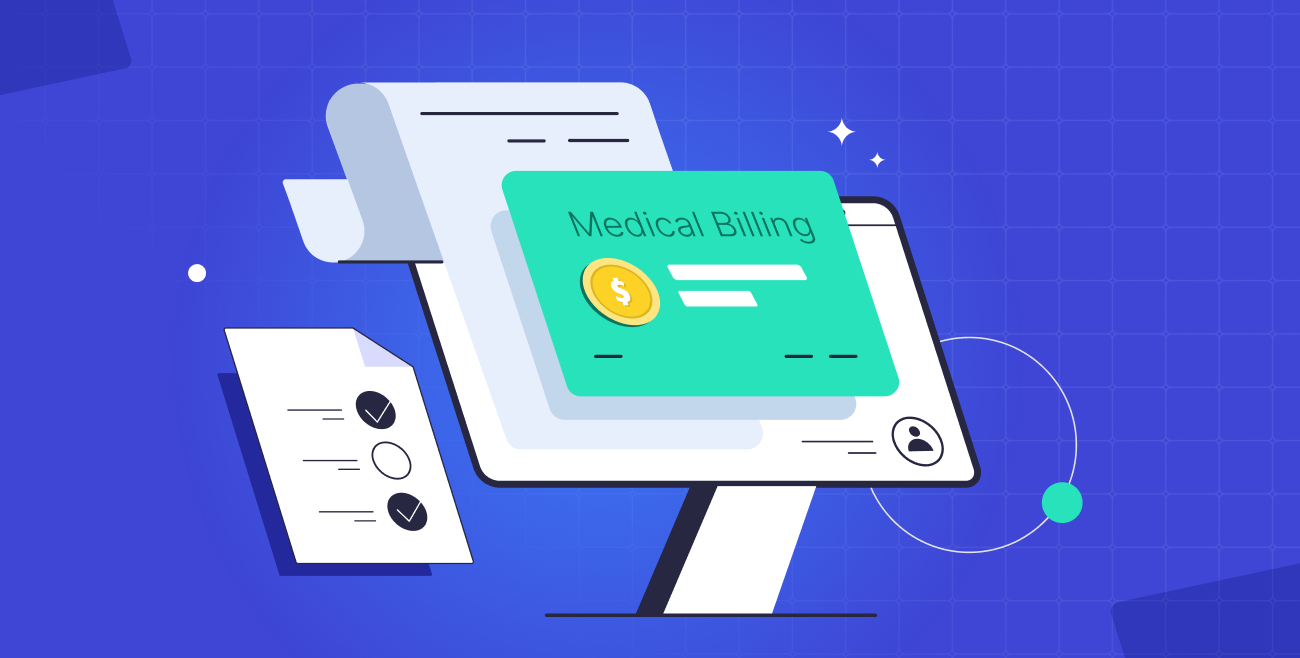
Table of Contents
In the healthcare industry, non-emergency medical transportation (NEMT) removes barriers for patients needing essential medical care.
However, for NEMT providers, the intricate world of healthcare billing can make it challenging to get reimbursed for that transportation and sustain a successful business.
This article will help unravel the complexities of NEMT Medicaid billing, exploring the vital role of Medicaid and the unique challenges it presents that demand specialized billing solutions.
Understanding NEMT Medicaid Billing
NEMT is a vital component of healthcare, ensuring that individuals facing transportation challenges can access essential medical services.
It serves as a lifeline for those with limited mobility or financial means, bridging the gap between patients and healthcare facilities.
A state and federally-funded program, Medicaid is pivotal in making NEMT services accessible. It is the primary funding source for NEMT providers, covering the costs of transporting eligible individuals to their medical appointments.
Medicaid’s involvement goes beyond financial support; it represents a lifeline for countless individuals who rely on NEMT to access necessary healthcare.
Unfortunately for providers, the path to NEMT reimbursement is far from straightforward. It presents a unique set of challenges that demand specialized billing solutions. Complex billing rules, varying state-level regulations, and the need for precision and compliance create a complex landscape for NEMT Medicaid billing.
Traditional billing systems often prove inadequate in addressing these complexities. The intricacies of Medicaid billing rules and regulations require a specialized approach to ensure accuracy and compliance. NEMT billing must navigate a web of regulations that govern eligible services, documentation, and reimbursement rates, making precision paramount.
Do More with Less
Handle more trips with fewer dispatchers on your payroll with Tobi.
Request a DemoWhy Traditional Billing Systems Fall Short
While efficient in various contexts, traditional billing systems may not suffice for NEMT Medicaid billing.
The complexities of Medicaid billing rules and regulations, coupled with the specific nuances of NEMT, create a landscape that demands a specialized approach.
Medicaid’s Complexity
Medicaid billing is characterized by intricate rules and regulations that vary from state to state.
It requires a deep understanding of Medicaid guidelines, eligibility criteria, covered services, and reimbursement rates.
The slightest deviation from these rules can lead to claim denials and delayed reimbursements, which can have significant consequences for healthcare providers and patients.
Benefits and Efficiency Gains
In NEMT Medicaid billing, specialized systems offer transformative advantages that transcend simplifying processes; they redefine efficiency and precision.
Streamlining NEMT Medicaid Billing
Specialized billing systems are meticulously crafted to cater to the intricacies of NEMT Medicaid billing. They streamline the billing process, from claim generation to submission and tracking.
These systems convert patient data, services rendered, and coding into precise claims, ready for submission. Electronic channels expedite claims delivery, avoiding delays often encountered with paper submissions.
Real-time tracking adds transparency, offering clarity and assurance to healthcare providers.
The Power of Accuracy and Compliance
One of the most significant impacts of specialized billing systems is their ability to ensure unerring accuracy and unwavering compliance.
In the elaborate web of Medicaid billing, precision is essential. These systems are meticulous in adhering to Medicaid’s stringent guidelines and regulations.
Accurate documentation of services, comprehensive eligibility verification, and strict adherence to Medicaid’s rules are fundamental to success in NEMT Medicaid billing.
Specialized billing systems excel in these areas, leaving minimal room for errors or omissions. Consequently, healthcare providers can anticipate improved reimbursements, fewer claim denials, and a healthier revenue stream.
Efficiency Gains and Reduced Administrative Burden
Efficiency gains are not merely a promise but a tangible reality with specialized billing systems.
Through automating repetitive tasks, these systems liberate administrative staff from labor-intensive manual processes. This, in turn, alleviates the administrative burden, enabling staff to concentrate on more strategic facets of their roles.
The impact of reduced administrative burden extends beyond efficiency; it directly translates into cost savings. Healthcare providers can optimize resources, redirecting staff efforts toward patient care and other critical areas.
This dual benefit of heightened efficiency and decreased administrative overhead underscores the transformative potential of specialized billing systems.
The Significance of Medicaid Compliance
Compliance with Medicaid regulations is not a choice but a mandate. It’s a commitment to following the complex rules governing NEMT billing.
Failure to meet these stringent standards can lead to claim denials, delayed reimbursements, and potential legal ramifications.
Specialized billing systems recognize the paramount importance of compliance. They are meticulously designed to align with Medicaid’s ever-evolving guidelines.
These systems act as gatekeepers, ensuring that every aspect of the billing process, from eligibility verification to claim submission, adheres to the letter of the law.
Fortifying Data Security with HIPAA Compliance
Data security is another cornerstone of NEMT Medicaid billing, especially in an era where protecting sensitive patient information is paramount.
HIPAA (Health Insurance Portability and Accountability Act) compliance is non-negotiable. It sets the standard for safeguarding patient data and maintaining the confidentiality of medical records.
Specialized billing systems understand the critical nature of data security. They integrate robust data encryption, access controls, and audit trails to fortify the protection of patient information.
They are architected to create secure digital environments where data is shielded from prying eyes and potential breaches. Patient data, including medical records, is handled with the utmost care and encryption, ensuring it remains confidential and always protected.
In an era where data breaches can have far-reaching consequences, specialized billing systems offer peace of mind to healthcare providers, assuring them that patient data is not just a priority but an unwavering commitment.
Developing a Customized Solution
In NEMT Medicaid billing, one size does not fit all.
Each healthcare provider’s needs are unique, and a tailored approach often yields the best results.
Customized billing systems are designed to align with the specific requirements of healthcare providers. They encompass the nuances of each provider’s operations, ensuring that the system seamlessly integrates into existing workflows.
The Role of Software Providers
Software providers play a vital role in developing customized solutions. They work closely with healthcare providers to understand their unique challenges, workflow intricacies, and billing needs.
Armed with this knowledge, they craft specialized billing systems that optimize efficiency and accuracy, all while ensuring compliance with Medicaid regulations.
NEMT software—like Tobi—takes much of the guesswork out of Medicaid billing, making it easier to get paid. Providers can easily track and resolve issues with invoices and claims in one place.
Tobi helps operators manage every aspect of their business in one convenient solution, eliminating human errors, handling claims quickly and efficiently, and working with most major billing platforms.
Are you curious to see how Tobi can help you run your NEMT operations more efficiently? Request a demo for a free 30-day trial and experience how Tobi makes your business better at every turn.




